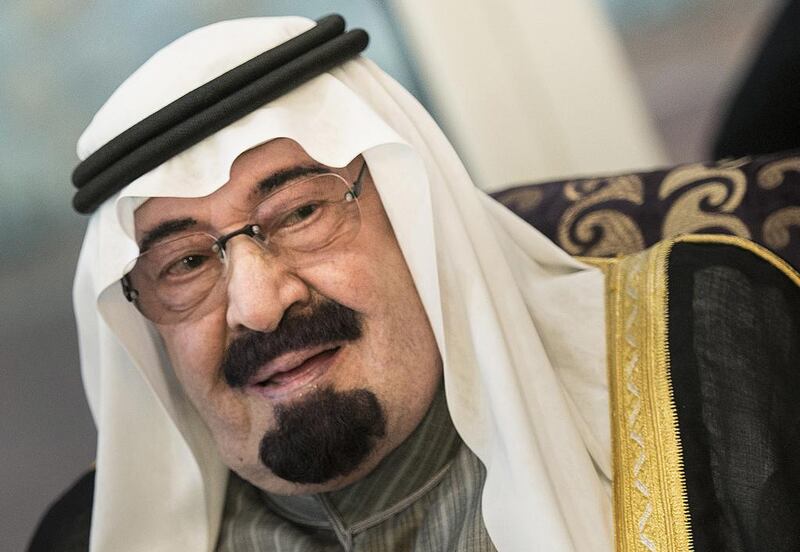The constant prayer in Saudi Arabia right now, be it on official channels or on social media, is for the recovery of King Abdullah.
He is revered and loved as a grandfatherly figure and Saudis young and old are hoping the 90-year-old monarch will pull through, just as he has done before.
This year, it will be 10 years since he came to the throne. There have been many important reforms, including cabinet changes and on women’s rights. He gave women the right to vote and run in municipal elections and under him women were appointed for the first time to Al Shura, the consultative council.
King Abdullah is particularly loved by Saudi women, for, while the ban on driving has yet to be removed, he has taken steps that challenge some of the country’s more conservative norms.
For instance, a photo from 2010, shows the king posing with more than 40 Saudi women at a seminar on health and community. It sent shock waves through the country as a statement on women’s rights, how it was “OK” to work with them and because most of the abaya- and scarf-clad women in the photo had uncovered faces.
Recently, many Saudi women, especially in Jeddah, have opted out of wearing the black abaya and scarf and turned to more fashionably cut and embroidered coloured ones in, but not limited to, beige, sky blue, grey, white.
According to some reports, expat women, particularly of Palestinian and Syrian origin, tend to be dressed most conservatively with niqab. I was able to confirm this with a random study at a Jeddah mall while I was visiting home, but the changing choice of abaya would be an interesting sociological subject for proper scrutiny.
There are many interesting and beautiful aspects about Saudi Arabia that hardly ever make the news. Every city and town has a story, and each is worth exploring. Sure they have issues that need fixing, but which place doesn’t?
For me personally, there is nothing quite like going home to Jeddah for the holidays, and catching up with the people and the things that once defined your life at a different time. You note the changes and the things that defy time and stay the same.
For example, certain local brands with an almost cultlike following have survived. Al Baik, which launched in Jeddah in 1974, is a fast-food chain that sells broasted chicken and shrimps with a variety of legendary sauces. I am vegetarian, so what I always ask for whenever someone travels to Jeddah, is to bring me packs of Al Baik’s garlic sauce. Al Baik is also a rare local success story in a world full of powerful international chains.
A less welcome development this time was when someone stole our baby palm tree from outside our house. It was being carefully nursed, but one day, we found a deep hole in its place.
“It is a sin to steal someone’s palm tree,” said an old family friend, who’s more than 70 years old. He shook his head and added: “The new generation doesn’t understand how sacred trees are, and the rights of neighbours.”
But do most of us even know our neighbours today? Home, there are people like Mohammed, who is from Pakistan and has worked at the same supermarket for more than 20 years. He has seen us grow up and knows all the families that pass through and what they tend to buy. He is part of our extended family.
Things and people change so quickly in fast-moving places like the UAE, that strong bonds are difficult to make and maintain.
Whatever changes come to Saudi Arabia, one thing I hope never changes, is the ability to form lasting bonds with those around us.
rghazal@thenational.ae
On Twitter:@Arabianmau





